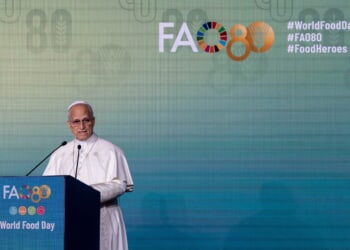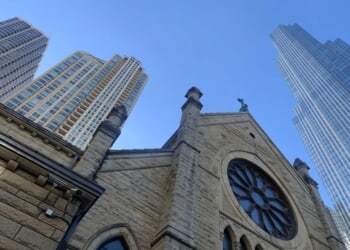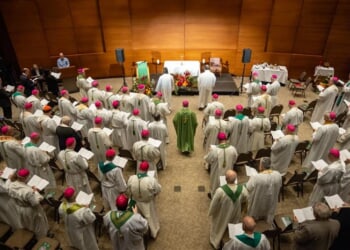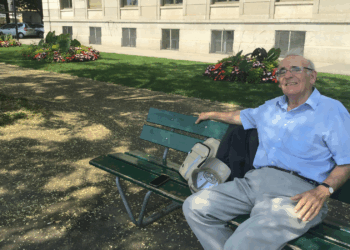David Willetts is a member of the House of Lords.
There is a common theme in recent interventions from Katie Lam, Danny Kruger and indeed Kemi Badenoch in her conference speech – what is it that holds Britain together and makes us more than a marketplace with a flag on top?
Tali Fraser’s excellent piece on ConHome diary on 22 October (The Tories and the Search for Cultural Coherence) analysed the issue and reminded us that David Cameron too wrestled with the issue. John Major and Theresa May both touched on it too. The Conservative tradition is about how we combine the market (property rights, calculation of profit, mobility) with community (shared values, belonging, roots).
One of the most powerful critiques of free markets is that they threaten deeper values. The critics say free marketeers just assume we emerge as responsible adults without asking where their values come from.
Margaret Thatcher was very aware of this critique which focussed on her observation “there is no such thing as society” which was wrenched out of context.
For her the answer to the challenge to the amoral market place was her deep Christian beliefs. She reached for parables such as the Good Samaritan or the parable of the Talents to explain the values she thought people operating in a marketplace should live by. Christian duty is indeed a powerful means of overcoming the problem. And it is striking how many Conservatives today are turning to such an account. It does of course open the issue of the extent to which other religions provide such a solution as well. But Britain is a secular society and whilst admirable I do not think an appeal to Christian obligations can any longer solve the problem. If there is a theme in my writing about Conservatism over the decades it is about a viable account of what holds our society together which does not depend on prior religious beliefs.
There is a risk that the Party goes down some dark and dangerous blind alleys. For a start Britishness is not about ethnicity. Part of the genius of Britishness is that it is not blood and soil nationalism. Instead it is a set of institutions from constitutional monarchy to Parliament which makes us who we are. Indeed one of the distinctive features of our account of who we are is that these political institutions matter so much. Tourists come to see them. Frenchness is about food and culture – you don’t go to Paris to gawp at the Assemblée Nationale and the Elysee. That is why the European project, partly involving political institutions, came at a much higher price for Britain’s sense of identity.
There are many other institutions too which matter so much for our national identity from the BBC and the NHS to the British army with its glorious traditions and history. And it is the local institutions too – the school, the city. We now understand better than we did how these local institutions work and what they do: as soon as there is an environment in which you interact with some of the same people repeatedly it makes sense not to betray their trust. Even a minimal account of humans as amoral selfish egoists promotes the evolution of co-operation as it becomes a rational strategy not to betray unless you are betrayed . Surprisingly good behaviour does not depend on prior moral values though they are of course admirable.
All of this is what I called Civic Conservatism.
Talk about White British really is not part of this tradition. It is particularly odd as this ethnic diversity is one of the deliberate strategies of Brexit. We broke with our neighbours and instead deliberately went global. Fewer young French and Spanish students improving their English whilst studying here. Fewer Polish plumbers. Fewer East European care workers. And as we withdrew from a labour market shared with them, we instead recruited from much wider afield.
The Boriswave was the Brexitwave. Brexit was not just economically damaging it also abandoned a credible European project of a competitive internal market and strong external borders to control migration from outside Europe. There was a strong cultural Conservative argument for Europe which has never been made.
The Party is now wrestling with the consequences of this.
We cannot appeal to ethnicity to hold us together. There is one other value which does hold us together – trying to make life better for our children. My interest in fairness between the generations is sometimes seen as generational warfare.
But actually it is the opposite.
If there is an appeal which crosses religion and cultures it is caring for one’s children and wanting to see them better off and flourishing more than us. An appeal to that would break down barriers rather than building them up.

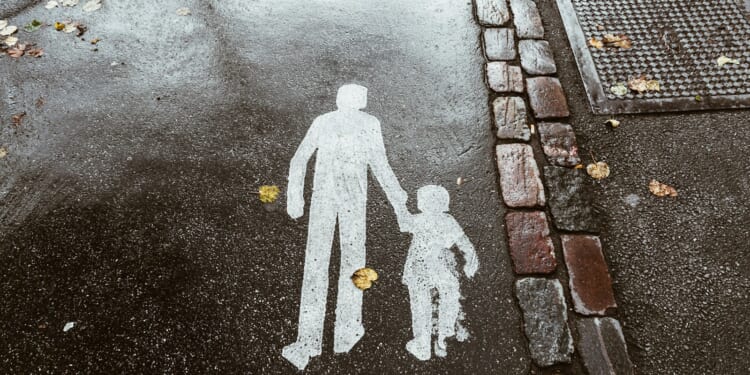







![Florida Officer Shot Twice in the Face During Service Call; Suspect Killed [WATCH]](https://www.right2024.com/wp-content/uploads/2025/12/Inmate-Escapes-Atlanta-Hospital-After-Suicide-Attempt-Steals-SUV-Handgun-350x250.jpg)


